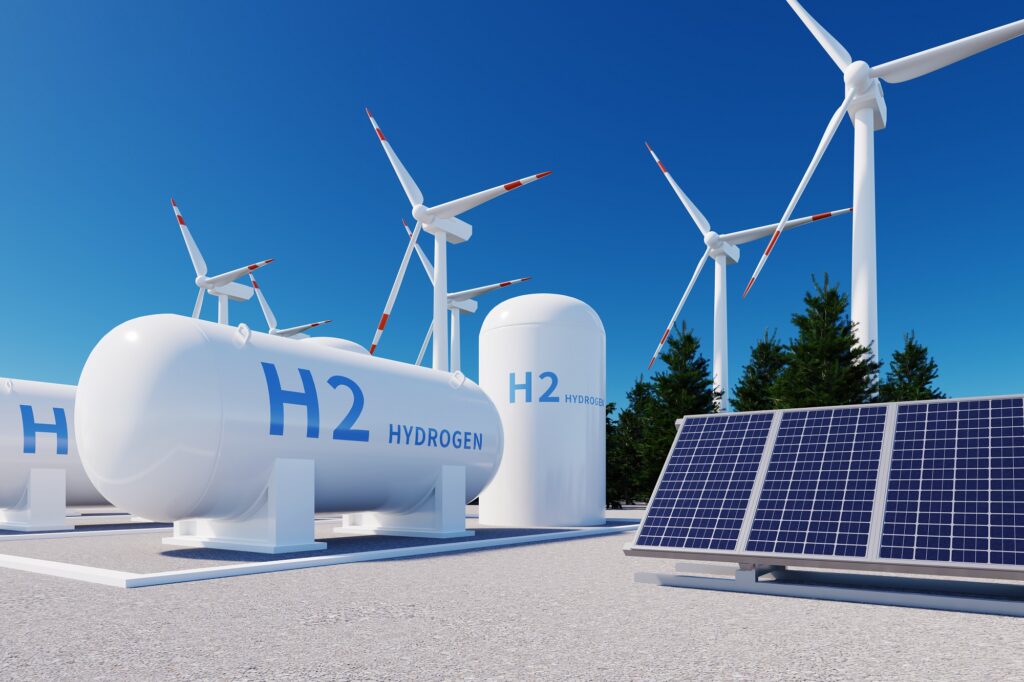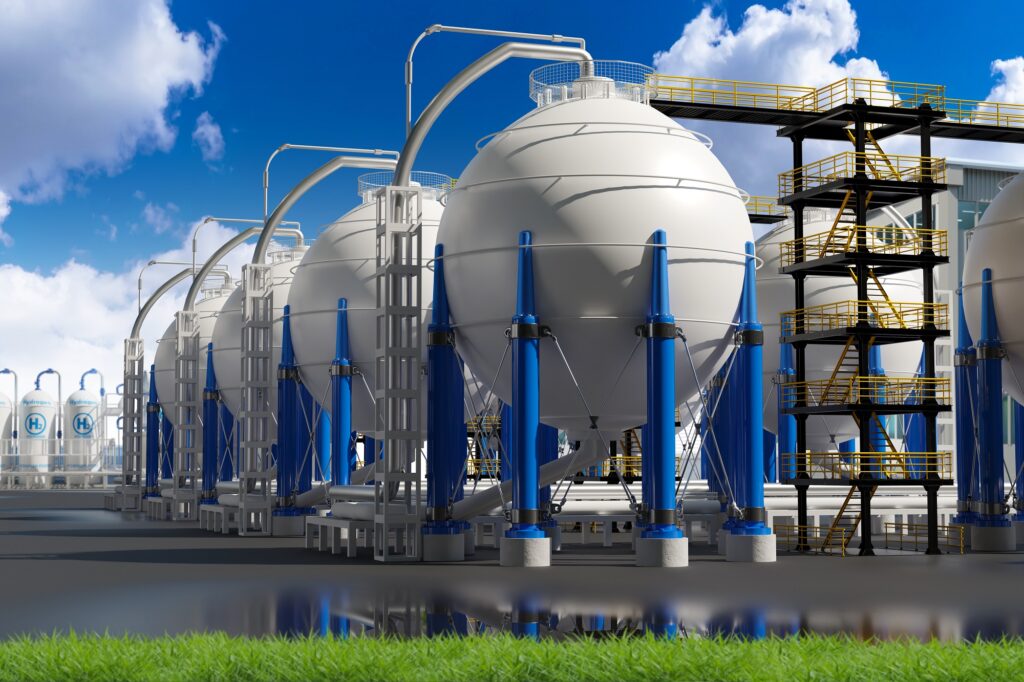How does a hydrogen cell work?
A hydrogen fuel cell is nothing more than a mini power plant on board a vehicle. Find out how does a hydrogen cell work!

Hydrogen as the fuel of the future?
Hydrogen is one of the most frequently indicated energy sources that will help us on our way to a zero-emission economy. It is used in transport, industry, and energy generation. Full use of its potential, however, is associated with several challenges. Can we consider hydrogen as the fuel of the future?
Under normal conditions, hydrogen is a non-toxic, odorless, tasteless, and colorless gas. One of the main advantages of hydrogen as a fuel is that its combustion does not emit carbon dioxide or other harmful substances. The only by-product of hydrogen combustion is pure water, which makes the process environmentally friendly. Compared to traditional fossil fuels that contribute to climate change and air pollution, hydrogen can play a significant role in reducing greenhouse gas emissions.
Hydrogen is a very versatile fuel that can be used in a variety of technologies. It is also the advantage of this element over other alternative energy sources. It can be used in hydrogen fuel cells, where the energy generated from the chemical reaction between hydrogen and oxygen is used, which produces electricity and, in consequence, propulsion. The properties of hydrogen vehicles are similar to electric vehicles, but instead of drawing energy stored in batteries, they use fuel cells that convert hydrogen into electricity.
One of the most important arguments for using hydrogen as a fuel is its widespread availability. The most abundant source of hydrogen on Earth is water. This element also has a very high calorific value. With 1 kg of hydrogen, the fuel cell can produce approx. 33 kWh of electricity. It is also worth noting that refueling with hydrogen takes as little time as refueling with LPG.

Hydrogen may therefore be an excellent candidate to replace coal, oil, or natural gas in the energy and transport sectors. This is especially useful in the context of public transport. Due to the nature of the routes, available infrastructure, or other factors, electric buses cannot always fully replace their combustion engine counterparts. In such situations, hydrogen buses are an excellent complement to the fleets of carriers who strive for the highest possible share of zero-emission vehicles. In addition, hydrogen buses help meet the EU Clean Vehicles Directive, which imposes requirements on countries regarding the purchase of new buses.
Hydrogen can also be used as an energy carrier that can be stored and transported in various forms. Hydrogen as an energy storage can be compressed to high pressure as compressed hydrogen (H2) or cooled to very low temperatures as liquid hydrogen (LH2). The element can also be produced by electrolysis of water, a process in which electrolyzers use electricity to split water molecules into hydrogen and oxygen.
This process, especially if it is to be carried out on an industrial scale, requires large amounts of energy and extensive industrial infrastructure. According to a declaration signed between the European Commission and producers of electrolyzers, by 2025 the generation capacity is to increase tenfold, to 17.5 GW. To minimize the negative effects of hydrogen production on the environment, the best solution is to use renewable energy sources to power electrolysers, such as solar and wind farms. Hydrogen created this way in considered green.

Of course, there are also challenges in using hydrogen as the fuel. One of the main problems is the cost of hydrogen production and the development of infrastructure for its storage and distribution. This involves much higher investment costs than in the case of fossil fuels. Hydrogen also requires special safeguards during storage and handling. The issue of the source of energy used for its production is also not without significance. If it comes from fossil fuels, it does not ultimately contribute to reducing emissions. The hydrogen produced in this way is called grey.
Despite these challenges, hydrogen continues to be widely researched and developed as a promising fuel of the future. Thanks to the increased supply and subsidies, the availability of hydrogen as a fuel will grow dynamically. At the same time, the costs of the gas itself, the necessary infrastructure, and vehicles powered by this fuel will decrease. Investments in hydrogen technologies, infrastructure development, and increasing environmental awareness can accelerate the introduction of hydrogen as a sustainable fuel that can play an important role in combating climate change and reducing dependence on fossil fuels. In recent years, the emergence of new hydrogen refueling stations in Europe has been observed.Currently, there are over 200 of them, and according to market market forecasts, by 2030 there will be no less than 1,000 of them.
The European Union supports the use of hydrogen in transport and industry in various ways. A whole range of funds and initiatives have been set up to provide funding for research, development, and deployment of hydrogen projects. Moreover, the EU introduced a directive on the promotion of the use of energy from renewable sources, which assumes the production of 10 million tons of hydrogen and the import of another 10 million tons by 2030.
A hydrogen fuel cell is nothing more than a mini power plant on board a vehicle. Find out how does a hydrogen cell work!
Interview with Krzysztof Dostatni, CEO of MPK Poznań.
The hydrogen industry, its developmnet and challenges: interview with Jorgo Chatzimarkakis, CEO of Hydrogen Europe.